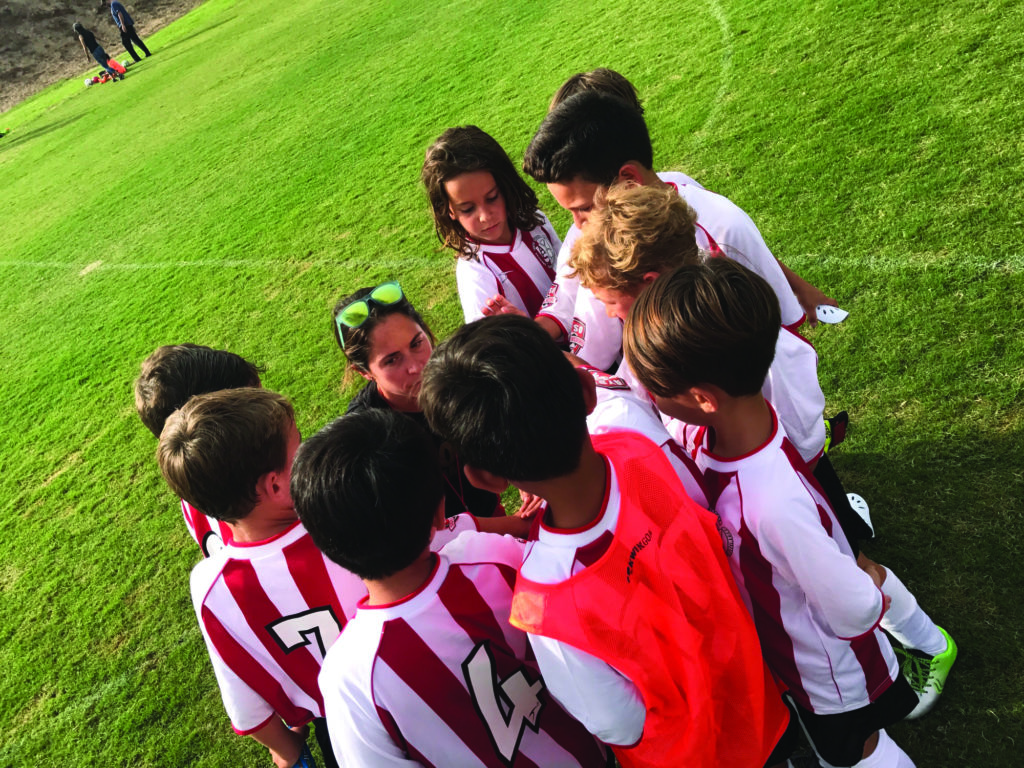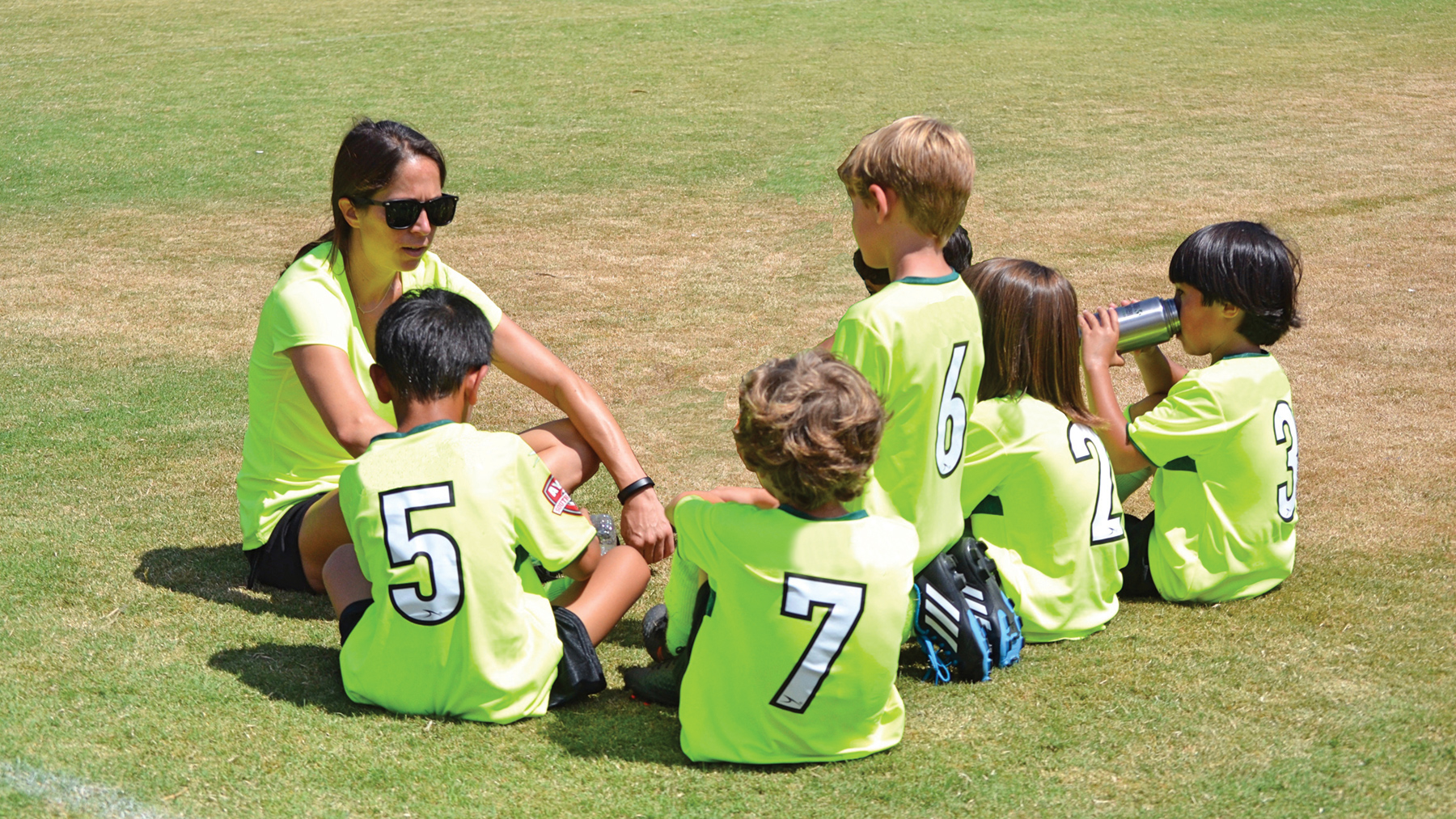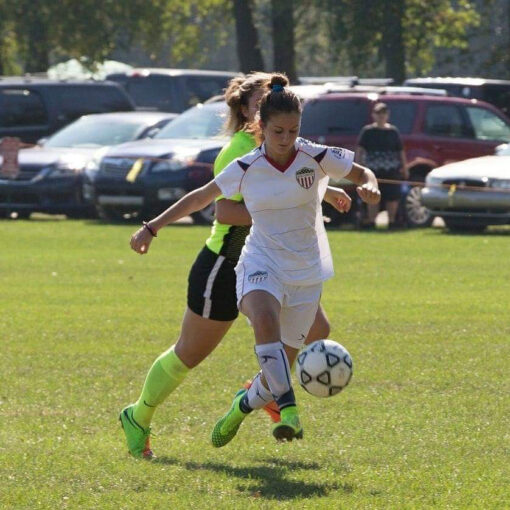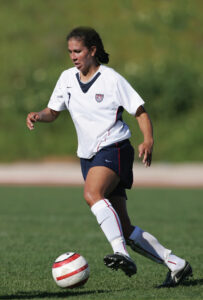By: Katie McKee, M.A.
Stress is a common experience and as adults, it’s a lot easier for us to identify and cope with it.
For kids, it’s a different story. While age and personality play a role in how a young person handles stress, often times they aren’t sure that what they’re feeling is stress, what’s causing it, and haven’t yet mastered how to talk about and/or cope with it.
To recognize stress in youth, it’s important to first be aware that there can be both good stress and bad stress. Good stress means it can help the body be ready to perform by acting as a positive “jump start” to a young athlete’s body and mind. Excitement or butterflies can be perceived as good stress.
On the other hand, negative stress can be detrimental to performance and distract a young athlete’s focus and concentration.
This type of stress can manifest in two ways:
- Internally/mentally: Negative, doubtful, and/or worrisome thoughts, shallow breathing, racing heart, etc.
- Externally/physically: Stomachaches, nervous tics/habits, negative language, etc.
- As you keep an eye out for stress in youngsters, try to identify if what they are experiencing is good stress or bad, and address each accordingly.
Possible Causes of Negative Sports Stress in Youth
- Wanting to perform well.
- Wanting to please a parent or coach.
- Pressure to win.
- Wanting to look good in front of their peers.
- Starting a new season, a new sport, or joining a new team.
- Having high or unrealistic expectations placed on them either by coach, parent, or self.
Signs/symptoms of sports stress may include:
- Anxiety, worry, nervousness about sport, self-doubt.
- Unable to relax.
- New or recurring fears (fear of sports participation, fear of not perf
- orming well, fear of judgment by others).
- Not wanting to go to practice or games.
- Clinging, unwilling to let you out of sight.
- Anger, crying, whining, moodiness, aggression, stubbornness.
- Not able to control emotions.
- Trouble focusing.
- Development of a nervous habit, such as nail biting or a nervous tic.
If you notice signs of negative stress, talk to that child about what they are feeling and what might be causing it. Creating a safe communication space is important for the child to feel like they are able to talk about what they’re going through so they can start to learn how to cope with it.
Below, you will find some suggestions to increase your awareness about youth sports stress and how you help.
 Keeping your expectations in check can help kids manage their stress. Pushing them too hard to perform well often leads them to underperform, have lower self-confidence, or be focusing on the wrong things. Ask yourself, am I asking too much?
Keeping your expectations in check can help kids manage their stress. Pushing them too hard to perform well often leads them to underperform, have lower self-confidence, or be focusing on the wrong things. Ask yourself, am I asking too much?
Help kids stay process driven rather than outcome driven. Having them focus on the next play or one shot at a time will allow them to stay in the moment, have fun, and worry less about their overall performance or external expectations.
Check your body language and tone during good moments as well as not so good ones. What message is it sending? Do your words and your body language match up? Kids are more intuitive then we give them credit for, and they will pick up on mixed messages right away.
Embrace adversity. They’re kids and they’re supposed to make mistakes. Talk about those mistakes as positive, teachable moments to help reduce the stress youth may feel after
“messing up.”
Ask more process related questions. What was most fun today? What did you learn? What didn’t you like about today? What do you want to try to do next time? Do you feel like you tried your hardest today?
Try to avoid outcome driven questions like “Did you win?” or “Did you score?” Asking only outcome-based questions suggests to youth that you are only interested in whether they won or scored, and their self-esteem can become wrapped up in that. It’s important to avoid causing extra stress in youngsters by suggesting to them the only things that matter are stats
and outcome.
Set up boundaries for how and when you talk to young people after performing. Some follow the rule 5 minutes only immediately following a game or practice; others wait 60 minutes post-performance to talk to their youngsters. Talking too much or too long to youth about how they did or what you think they could do better can create a stressful environment for them; something they dread post-game.
Talk about winning and learning. Rather then always winning and losing, what about winning and learning. Wanting to win is okay! But winning is not everything. Discuss losing, but phrase it in a way that emphasizes learning. Creating a healthy outlook about outcomes with youngsters can help them maintain a great perspective no matter what happens.
Make sure they are having fun! If you ask a youngster why they play that sport, most will tell you because it’s fun! Fun should be one of, if not the most important part of youth sports participation. Fun helps eliminate stress, so check in regularly to make sure they are still having fun, and that you are too.
Katie McKee, M.A., is a Mental Performance Consultant and AYSO coach in the Redondo Beach, Ca area. She works with players, teams, coaches, and parents on the mental side of performance. For more information or to get in touch with Katie, please visit her website www.mindfit-performance.com.


























